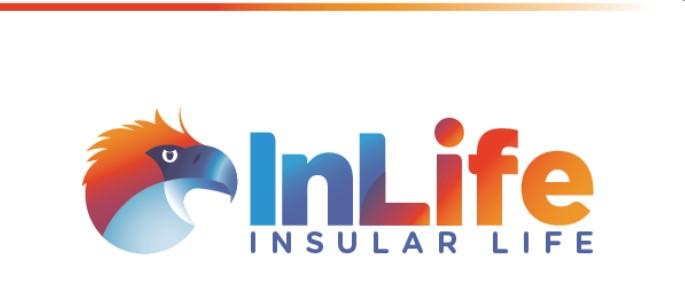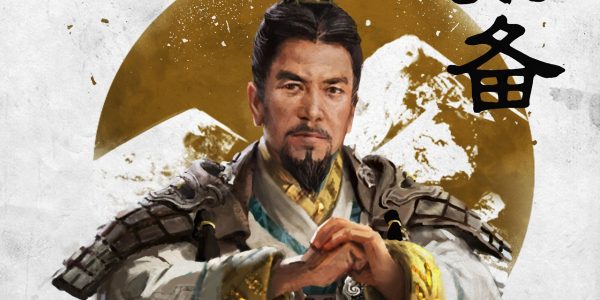Real Estate Industry
Real Estate News.
Personal Opinions
Honest Views On Current Events
Cars, Racing, and Many More
An Aspiring Car Guy. A Fan of Motorsport.
Insular Life
Providing Financial Security to Filipinos Across Generations.
PC Gaming and More
Posting Some of My Gaming YouTube Videos
Saturday, April 16, 2022
#Election2022
Sunday, February 6, 2022
A borrowing tale of two presidentiables
Monday, January 31, 2022
How I would answer if I was the 6th presidential candidate
How I would answer if I was the 6th presidential candidate if I was interviewed by Tito Boy
1. Mining
"Mining is a very important industry. We will only give permits to companies that have a very good track record and penalize or even revoke those that have not followed the law. We need to create refineries so that we will have the possible highest value for the minerals/products. All stakeholders will be involved (government, private companies, local people). As for open pit mining, I will leave that to our experts. Has it worked for other countries? What happens when a pit is exhausted? These are things that people who specialize in these things will be able to answer. I will appoint capable people, who have the merit and the experience to lead the DENR."
2. COVID 19
"When there was news on the outbreak, we were not prepared. We did not stop the flights from infected countries. The government did not want to hurt the feelings of our "friend."
In the future, I would task the DOH, to create a "screening" committee. They will be monitoring health news around the world so that they can provide an assessment or provide recommendations if we need to stop flights or limit our port access. The plan is to stop or mitigate the entry of diseases from our borders. If we did this early on, the initial impact of COVID could have been lessen.
I will appoint capable people who have field experience on these matters, not merely textbook experts. There needs to be a a council of doctors, who will give their weighted opinion on how to approach this problem. The recommendation will be key to formulating the overall policy of the government because this will affect the populace, the businesses, etc. It will be a balancing act.
We also need to secure the supply chain - like drugs, medical equipments, and PPEs. We have local people who had the ability to produce PPEs but we still favored importation. Why? Perhaps we could have imported what we need for the short time but focused on producing locally. As long as the quality is good and its of medical grade, then why not? The Pharmally issue is very disturbing. They have not been in business for a long time but they got a very big contract.
I'd like to create a baseline business for medical companies to manufacture essential drugs and equipment here in the country. We can create a national company for this or maybe provide attractive incentives for private enterprises to venture into this endeavor like no tax, special permits, etc. We cannot solely rely on other countries to provide us what we need in times of a health crisis.
Vaccination should be a choice. We should learn to live with the virus. Practice minimum health protocol. If an individual exhibits symptions, then stay at home or get yourself tested.
Again, our policies should be based on facts (and if possible peer reviewed or learn from the experience from other countries). We are dealing with a novel virus. But our policies should not affect the livelihood of our people."
3. Poverty
"Poverty will always be an issue. What we need to immediately address is the minimum basic needs of the poor.
We will create a socialized mass housing for the poorest of the poor in the cities and provide them with a limited food stamp. During this time, we will teach them vocational skills so that they can work in jobs that do not require much educational background. They need to be productive members of society.
For the rural communities, we will empower agriculture or industries that are specific to that locality like tourism, mining, etc. Example: skills training and equipment for farmers so that they can have more output. There needs to be a fair base price for the produce so that they are not abused by traders.
If you are born poor it's not your mistake. But if you die poor, it's your mistake. Basically, my idea is the government is there for the initial help but moving forward, it will entirely be up to you whether you want to be helped."
4. OFWs
"The limited option to go abroad to work so that we can provide for our family is a noble sacrifice with a huge social costs. Sad to say this is a reality that we are living in.
For the short term, I would limit deployment to countries that have issues with our workers (domestic abuse, etc). The welfare of our citizens is important. It needs to be fixed first.
For the long term, I would want our citizens to go abroad and work because it is their choice for a better income, not survival income. The Philippines has a very competitive labor force. We speak English, we can adapt to situations, we are everywhere in the world. Example: we provide seafarers, teachers, nurses, drivers etc etc. These are blue/white collar jobs that provide good money. Some foreign companies prefer Filipinos. This is an advantage we have.
Again, it should be a choice for a BETTER income, not SURVIVAL income. Let us say, once we have competitive salaries, a nurse in the Philippines can earn 50k per month, but is offered 250k in other countries, then the choice will be theirs to make. What is important is that we provided them that option whether to stay or go abroad."
5. Social Media/Pornography
"We need to have laws that will bind these social media companies accountable to the law.
IT experts can have restricted content blocked to unauthorized users (minors, etc). We have ID and facial recognition software to verify age or identity. As long as the rights and privacy of the user is protected, then this should work.
Censorship should be applied to fake news. Opinions cant be blocked and is part of our freedom expresions but peddling fake news as true is a crime. It misleds people, especially those who dont verify the source or just reads the headlines.
Twitter and Facebook have been purging social media accounts of trolls farms. This is the right step. We should also trace these farms and punish them for it. "
6. Abortion
"Life is life. It is not the fault of the conceived that he was created, even if it was rape. We need harder sentences for rape to deter this type of crime.
I think a child should be born, especially if the mother and baby are not medically in danger. If the mother does not want to take care of the child, the government can step in and offer the baby for adoption or take care of it themselves (orphanage, etc). We need to be a compassionate society.
If a mother or baby is in danger, then the decision will be up for the doctors, the individual, and the family. This will be their choice.
The government will take care of everyone, especially the unborn. "
7. Drugs
"We should have learned from countries that have fought the drug war before us. Too much focus is given to the street level peddlers that we forgot about the source. We need to target the drug lords.
Billions of drugs passed through customs. What did we do?
I will enhance the rehabilation efforts of users to make them productive members of society. On the prevention side, we could do presentations, maybe a reformed drug addict, in schools to inform young people and deter them from trying it. A lot of people who recovered from drug abuse include famous celebrities like Robert Downey, Jr and Ben Afflect to name a few.
On the supply side as a whole, I will task PDEA to be the overall agency in charge of the operation. This is to avoid another PNP/PDEA encounter. The mandate will be to go after the big fish (meaning the manufacturer, supplier, importer). I will probably appoint a career candidate, one who has been in field operations, planning, and management, to lead this agency. He needs to be experienced, capable, and well respected. Perhaps we can strengthen our customs, improve intelligence, and supply our men with the necessary training and equipment to do their jobs.
Body cam is a must for every sting operation. "
8.Debt
"We have acquired a lot of debt these past few years, almost two times from the previous presidency (from all past presidents).
Yes we have the pandemic. That is a given. But Duterte is not an economic man. We have borrowed heavily that we no longer have an elbow room. Key words: Duque, Pharmally, Sinovac.
Even before the pandemic, the economy was in a bad shape. He lambasted companies, personalities, and our foreign partners which shook and diverted money which probably would enter our country. He did not prioritize PPP which was good since you included the private sector. BBB is good but is finance-driven. We should be wary of the Belt and Road initiative and not be another Sri Lanka or Djibouti. The stock market has not grown significantly (doubled in size during PNoys term) and the Philippines entered the gray list of the FATF.
Remember, when companies were moving out of China, ASEAN countries benefitted by relocating industries. Did the Philippines get any multinational to start production here? It is important that we have clear cut and strong rules for business to attract FDIs.
The overall idea is this - we only need to borrow if there is a bigger return on it or if there is an immediate unforeseen event. Everything will be budgeted according to each departments true need. I will appoint capable and experienced people to run our financial institutions, not generals. They need to be fiscally conservative but not at the expense of tangible growth (not speculative or risky). Quality financial people will be key.
We will empower COA to detect inefficincies and corruption. We will empower the Ombudsman and the Sandiganbayan to prosecute erring politicians. We will streamline the revenue collection process of customs and the BIR (digitalization). We will cut unnecessary costs like destroying good roads to create a new similar one.
I will probably create a sovereign wealth fund, where proceeds or interests gained can be used to augment our budget deficiencies without affecting the original capital/investment.
Improve and generate revenues and efficient use of funds will lessen our dependency on debt. I will treat the national fund as simple as budgeting a house expense. "
9. West Philippine Sea
"We need to attain a minimum defense posture. Continue to automatically allocate a portion of our GDP for external defense. We also need to end the local insurgency and terrorism so our forces can focus on our borders.
Learn from examples from other countries on how they faced a giant like China, esp from Taiwan, India, Indonesia, Vietnam, and Japan. We don't need to fight a war and we can't win a war but we need to be ready.
We need to strengthen our alliances with like-minded nations who are for an open Indo-Pacific region. Approaching a complex issue like needs all stakeholders to be involved.
The WPS is a caught in the winds of the major world powers. For China, it is part of the first island chain and a means to secure her maritime borders. For the US and the free world, it is part of internatiol law, trade, and security. For the Philippines, it is primarily a means of livelihood for our fisherman and a source of income for oil, gas, and minerals.
Filipino fisherman should be able to fish. Filipino companies should be awarded the rights to exploit the natural resource. As to how to do this, I will convene with my economic and security advisors. This is a complex issue."
10. Presidential Qualifications
"All can run but are they qualified? For the highest position of the land, we need to have competent people who have the best interests of the Filipinos in mind.
Personally, I'd have the following presidential qualifications:
1. Finished a college degree
2. Finished any masters degree especially in finance/business or public service
3. Must have served on the local level (mayor, governor, brgy captain)
4. Must have served as a member of congress (rep or senator)
5. Must have no pending admnistrative cases
6. Must not be convicted of any crime that can disqualify for running a public office
7. Must be a natural born Filipino citizen and has resided in the country at least two terms of a president (12 years)
Again, these are just my personal preferences. A combination of good education and great experience is a big plus. "
NOTES: There are my personal opinions and some of the items stated here might be wrong (items based on reading and memory recollection).
Thursday, January 27, 2022
The 2022 Presidential One-On-One Interviews with Boy Abunda featuring Vice President Leni Robredo
1. Mining - Land Use Bill will allow areas to be designated according to best use; local and indigenous people to benefit from mining; streamline govt agencies and appoint capable people; sustainable mining can be achieved if proper mechanism is in place; highlighted experience on talking to people on the ground about the "consultation" process; principal author of the Empowerment Bill which mandates all govt agencies to have people's council
2. Pandemic - launched covid response initiatives to fill in the gaps (PPE sets, shuttle buses, dormitories, community outreach); learn from experience of other countries; sense of urgency; coordination of national and LGU; "in times of crisis, you need to micromanage"
3. Poverty - rolled out Kabuhayan Para sa Lahat Program; trust in govt is crucial; focus and invest on industries that we have opportunities; help small businesses through stimulus grant (money can be used to maintain employees); cites example on govt buying locally; proposes unemployment insurance; focus on job retention for the long term
4. OFWS - ideal is going abroad because of choice and not of necessity; provide quality jobs if they go abroad; in Naga, they have the migrant resource office to lessen social cost of working abroad
5. Social Media and Porn - a law to criminilize for accountability;
6. Abortion - cited experience as a lawyer on rape victims; against abortion not unless moms life in danger; open to discussions; pregnancy is a responsibility;
7. Drugs- cited experience as inter agency task force, sobrang street level approach; should be whole of govt approach;
8. Phil debt - efficiency; filed Full Disclosure Bill for transparency;
9. West Philippine Sea - mutual respect and adherence to international law; leverage arbitral ruling for coalition of nations; bilateral talks will not work but multilateral will;
10. Presidential Qualification - change the political landscape; education should not be a hindrance to run for presidency
Overall, this is probably a 7-8 out of 10 interview for VP Leni. There were some instances were she didn't answer directly to the point and elaborate but her experience and efficiency in running the OVP on a limited budget is very successful (ISO, COA). This can be replicated for the presidency.
P.S. Tito Boy, you were a big aggressive with her but that's understandable.















